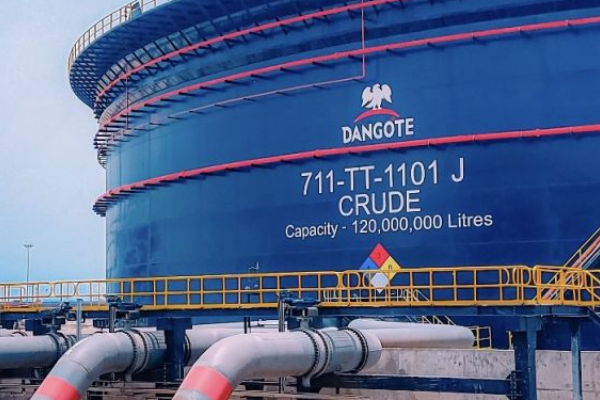In a significant development aimed at easing the economic burden on Nigerians, the Dangote Petroleum Refinery has announced a nationwide reduction in the pump price of Premium Motor Spirit (PMS), commonly known as petrol. The new pricing takes effect immediately and cuts fuel prices by ₦15 per litre across all distribution zones in the country.
According to an official statement from the refinery, the revised pump price now ranges from ₦875 to ₦905 per litre, depending on the region. Consumers in Lagos will purchase petrol at ₦875 per litre, while prices in the South-West, North-Central, and North-West will hover between ₦885 and ₦895. Residents in the North-East, South-East, and South-South are expected to pay up to ₦905 per litre.
The reduction applies to all authorized Dangote partner stations nationwide, including major fuel distributors such as MRS, Ardova, Heyden, Optima Energy, Techno Oil, and Hyde Energy.
The refinery, in its statement, said the price slash was part of its broader strategy to support the Nigerian economy and provide some relief amid the rising cost of living. “We remain committed to making high-quality petroleum products accessible at competitive prices to the Nigerian people,” the company noted.
Citizens are advised to patronize only certified partner stations and to report any irregularities or pricing violations to the refinery via its dedicated hotlines: +234 707 470 2099 and +234 707 470 2100.
This move comes as the Dangote Refinery—hailed as the largest single-train refinery in the world with a capacity of 650,000 barrels per day—continues to assert its position as a transformative force in Nigeria’s energy sector. Since its commissioning in 2023, the refinery has been at the center of fuel pricing reforms, with many stakeholders hopeful that local refining will reduce dependency on fuel imports and stabilize the downstream sector.
Industry analysts have praised the development, saying it will likely have a positive ripple effect on the cost of transportation and goods across the country. As Nigerians continue to grapple with inflationary pressures, this intervention is expected to provide some level of economic relief.
